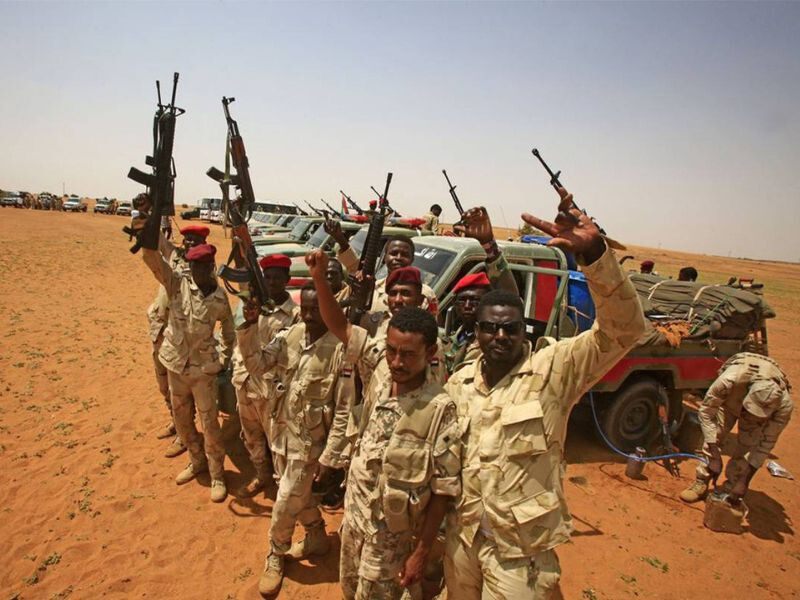
Recent diplomatic developments have placed Kenya under intense scrutiny, with accusations of deviating from international norms and undermining regional stability. A series of controversial engagements, particularly with Sudan's Rapid Support Forces (RSF) and the M23 rebel group in the Democratic Republic of Congo (DRC), have led to significant international backlash and accusations of Kenya becoming a "rogue state."
Sudan Controversy: Embracing the RSF
The core of the current diplomatic crisis stems from Kenya's interactions with Mohamed Hamdan "Hemedti" Dagalo, leader of the RSF militia, which has been implicated in grave human rights violations in Sudan. The recent high-profile welcome of Hemedti at Nairobi's Jomo Kenyatta International Airport by Kenyan Vice President Kithure Kindiki triggered a severe response from Sudan.
Sudan's government condemned Kenya's "irresponsible stance," accusing it of legitimizing the RSF's atrocities. In a sharp escalation, Sudan recalled its ambassador to Kenya, stating that Kenya's actions placed it "in the category of a rogue state that defies international norms." This accusation is rooted in the RSF's brutal conflict with the Sudanese army, which has resulted in a devastating humanitarian crisis since April 2023, displacing over 12.5 million people and causing thousands of deaths.
The United Nations and the United States have imposed sanctions on both the RSF and the Sudanese military for their roles in the conflict. Kenya's decision to host RSF figures in Nairobi in February 2024, where they signed a charter to form a parallel government, further intensified tensions. This move was widely criticized by the U.S., the U.N., and key Arab mediators, who viewed it as a destabilizing force in Sudan.
Despite Kenya's denials and claims of neutrality, stating its commitment to peace in the region, the international community remains skeptical. The U.S. State Department and the U.N. Security Council have expressed deep concerns, urging member states to avoid actions that exacerbate the Sudanese conflict.
DRC Involvement: Supporting the M23 Rebels
Kenya's involvement in regional conflicts extends beyond Sudan. In late 2023, Kenya hosted members of the M23 rebel group, which has been accused of committing atrocities in the eastern DRC. The M23's control of key cities in the mineral-rich region has further destabilized the DRC.
The DRC government reacted strongly, recalling its ambassador and expelling Kenyan troops. President Felix Tshisekedi also boycotted a summit chaired by Kenyan President William Ruto in January 2024, signaling a significant deterioration in relations. These actions have further strained Kenya's relationships with its neighbors.
Human Rights Concerns: Abductions and Deportations
Adding to the diplomatic strain are serious allegations of human rights violations. Human rights organizations have condemned Kenya for abducting opposition leaders and asylum-seekers and handing them over to authoritarian governments, despite the risk of persecution.
Notable incidents include the abduction of Ugandan opposition leader Kizza Besigye in Nairobi in November 2023, who later faced treason charges in Uganda, and the repatriation of four asylum-seekers to Turkey in October 2023, where they faced potential political persecution. These actions have raised significant concerns about Kenya's commitment to international human rights law.
Contributing Factors and Analysis
Several factors contribute to Kenya's shift in diplomatic posture:
Regional Power Dynamics: Kenya's desire to assert its influence in the Horn of Africa and the Great Lakes region may be driving its more assertive foreign policy.
Economic Interests: Potential economic interests in Sudan and the DRC, particularly in natural resources, could be influencing Kenya's involvement.
Security Concerns: The need to address regional security threats may be leading Kenya to engage with non-state actors, despite the risks.
Shifting Alliances: Changes in regional and international alliances may be prompting Kenya to recalibrate its foreign policy.
Conclusion: A Shift From Mediator to Participant
Kenya, once respected for its role as a regional mediator, is now increasingly perceived as a partisan actor in African conflicts. Its support for the RSF and the M23 rebels, along with its human rights record, has led to growing international isolation. The accusations of Kenya becoming a "rogue state" underscore the severity of the diplomatic crisis.
Moving forward, Kenya faces the challenge of rebuilding trust with its neighbors and the international community. This will require a reassessment of its foreign policy, a commitment to international law, and a renewed emphasis on promoting peace and stability in the region.
[Copyright (c) Global Economic Times. All Rights Reserved.]





























